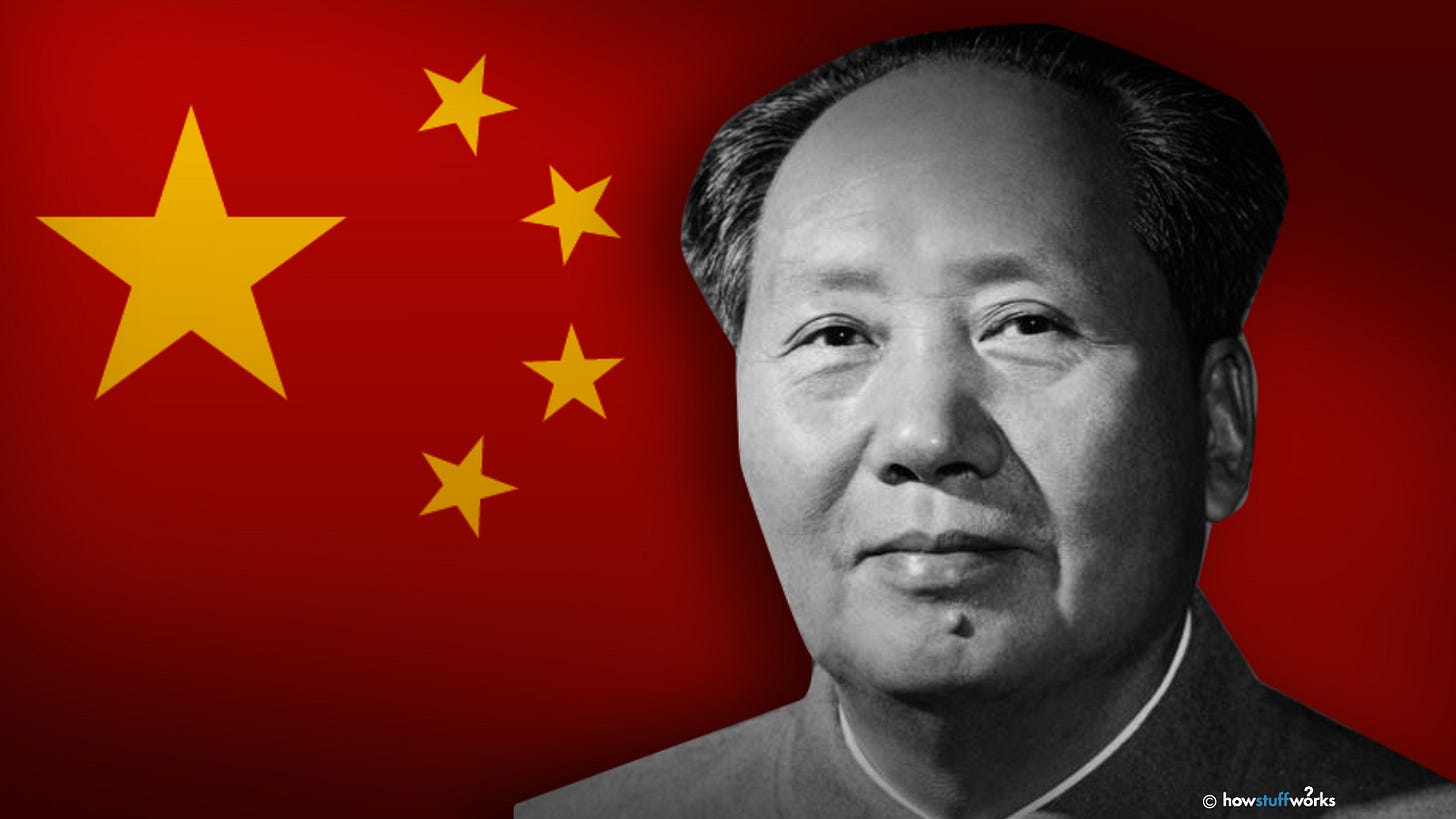Constraints on the Spread of Progress
There has been enormous progress throughout the world over the last three decades. Inequalities still exist, though. Most likely inequalities will always exist. Fortunately, inequality between nations has diminished over time, but true equality eludes us.
Large inequalities between nations and subnational groups are one of the key reasons why the Left is skeptical of or hostile to progress. Typically, the Left views prosperity and equality as the expected outcome and any deviation from those outcomes as something that needs to be explained.
The Left explains variations between societies and within societies as being caused by discrimination, selfishness, capitalism, and colonialism. More sophisticated explanations on the Left point to structural economic factors, politics, or ignorance causing inequality.
Anyone who has got this far reading my Substack column should be immediately skeptical of these explanations. We have seen that inequality has been rampant in all societies that evolved past Hunter-Gatherer societies. We have also seen that poverty has been an inherent part of the human experience for hundreds of thousands of years. We have also seen how differences in wealth between societies are very similar to those 2,000 years ago.
We have also seen that progress was invented in a few Commercial societies centuries ago and that progress diffused through the rest of the world over centuries. Progress and prosperity are unusual; poverty is the norm. I hope that my book helps you to better understand how progress emerged and gradually diffused.
We have also seen that six historical breakthroughs have led to sudden expansions of progress. The most recent was the fall of the Soviet Union in the early 1990s.
But why has it taken so long for progress to spread throughout the globe? Why didn’t the emergence of Commercial societies rapidly spread? Why didn’t the entire world industrialize within just a few decades of Britain doing so? Why are some societies still living in circumstances that more closely resemble their lives 2,000 years ago than what Western nations today enjoy?
Part of the reason why the Leftist explanations of discrimination, selfishness, capitalism, colonialism, structural economic factors, politics, and ignorance have lived on despite being wrong is that there are no real counter-explanations. My book series and this Substack column start the process of creating that counter-explanation.
Historically, major constraints on the diffusion of progress to poorer nations included:
Geographical constraints on food production that limited the type and amount of food that society could produce. Those constraints on food production placed fundamental limits on which types of societies could evolve.
Extractive institutions in Agrarian societies that diverted the food surplus towards increasing the income and status of elites who controlled those institutions.
Monopolies
Ethnic/religious/racial identities.
See also my other articles and podcasts on Ideology:
Why Ideologies Threaten Progress (Part 1 of 3-part podcast series)
Why ideologies fail (podcast)
Descent into a man-made Hell: Understanding modern Totalitarianism
The following is an excerpt from my book From Poverty to Progress: Understanding Humanity’s Greatest Achievement. You can purchase discounted copies of my book at my website, or pay full prize at Amazon.
You might also be interested in reading my “From Poverty to Progress” book series:
The Threat of Radical Ideologies
Most of the constraints on progress go back millennia. In 1917, however, a new threat to progress emerged: totalitarian ideologies. Just when repressive Agrarian societies in Europe were collapsing under the pressure of World War I and amid Woodrow Wilson’s dreams of worldwide democracy, freedom, and trade looked like they might be realized, Vladimir Lenin and the Russian Bolsheviks came to power.
The Bolsheviks played on class resentments against more successful groups in society. They used this resentment to establish extremely centralized regimes that subordinated all decisions in society to Communist doctrine. The Communists quickly gained control over all political, military, economic, religious, and cultural organizations. Nothing was outside the purview of the state and ideology, not even the family.
The Bolsheviks created a template for action that dominated much of the 20th Century: a small dedicated group of ideologues achieving power through violence. Once in power, those ideologues subordinated everything to the centralized state. All alternate views and ways of doing things were to be stamped out through indoctrination and violence. A viewpoint less conducive to bottom-up progress is hard to imagine.
From 1917 until 1991 the radical ideologies of Fascism, National Socialism, Communism, and Authoritarian Socialism did enormous damage to humanity. These ideologies focused class, ethnic, religious, and racial resentment upon more successful groups in their own society and abroad.
Rise of Totalitarian Ideologies
Taking advantage of the sudden collapse of the Tsarist regime in 1917, the Communists invented a new type of society. Then the Fascists, National Socialists, and Japanese militarists copied the Communists in some respects. These ideologues attempted to meld together Industrial economies with totalitarian governments that were far more extractive than even the worst Agrarian societies. They did so not to enrich elites (although the leaders of the Communist party lived at a far higher standard of living than the masses), but to fund the construction of a utopian society.
For much of the 20th Century, it looked as if these types of societies were destined to dominate the world, and the Industrial societies with a Commercial heritage (namely the United States and Britain) would fail. But National Socialist Germany, Fascist Italy, and Imperial Japan destroyed themselves with an orgy of reckless military expansion. The radical centralized power of those regimes could not restrain itself from creating more and more enemies. Decentralization of power might have restrained these self-destructive impulses, but this was not possible within this type of regime.
The Allied victory over Nazi Germany, Fascist Italy, and Imperial Japan at the end of World War II appeared to be a fundamental setback for these types of societies. Unfortunately, the Soviet Union and its Communist alternative society benefitted as much as the western Allies.
For many decades, it looked like Communism was the wave of the future. The rigid control of totalitarian governments appeared to have huge advantages over the decentralized power of Western capitalist societies.
Even some non-Communist leaders saw the Soviet Union as a model to build upon. But the fundamental inability of centralized institutions to innovate, adapt and copy caused these regimes to implode in the long run. The Soviet economy destroyed itself slowly due to its economic contradictions.
The Key Weakness of Totalitarian Regimes
The fundamental problem with the totalitarian regimes of the 20th Century was that they tried to avoid implementing the third Key to Progress (decentralization of power). They had no problem with the other four keys, but because of their ideologies, they could not see the advantage of non-violent competition between political, economic, and ideological organizations. They believed that their ideology unlocked the door to a utopian society. With such a goal, competition and diversity of views would only get in the way.
The Nazis and Fascists did not realize that decentralized political power could restrain a society from constantly going to war. With each new war, they created more enemies. Eventually, their enemies grew numerous and became so powerful, that defeat was inevitable.
The Soviets and later the Chinese Communists did not realize that privately-owned companies competing against each other works far better than centralized planning. And centralized economic planning makes competitive export industries (the fourth Key to Progress) very unlikely.
Totalitarians always believe that decentralized power and non-violent competition between political parties, corporations, and ideologies are weaknesses of a decadent society. They will never understand that decentralized power and non-violent competition are actually strengths of free societies.
And the failure to understand this inevitably dooms them to long-term failure. Unfortunately, the failure to learn this lesson early enough led to the tragic death of tens of millions of innocent people.
See also my other articles and podcasts on Ideology:
Why Ideologies Threaten Progress (Part 1 of 3-part podcast series)
Why ideologies fail (podcast)
Descent into a man-made Hell: Understanding modern Totalitarianism
The above is an excerpt from my book From Poverty to Progress: Understanding Humanity’s Greatest Achievement. You can purchase discounted copies of my book at my website, or pay full prize at Amazon.
You might also be interested in reading my “From Poverty to Progress” book series:












Good article! Nitpick:
>The Nazis and Fascists did not realize that decentralized political power could restrain a society from constantly going to war.
The Nazis and Fascists did realize that decentralized political power could restrain a society from constantly going to war, they just thought this restraint was a bad thing since they wanted unrestrained war.
In part totalitarianism arose from the logic of industrialization itself. Many of the gains of industrialization were based of economies of scale, from there it becomes natural to think of the whole country, or the whole world, as one giant assembly line.